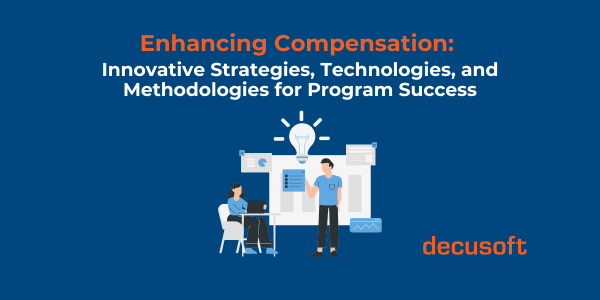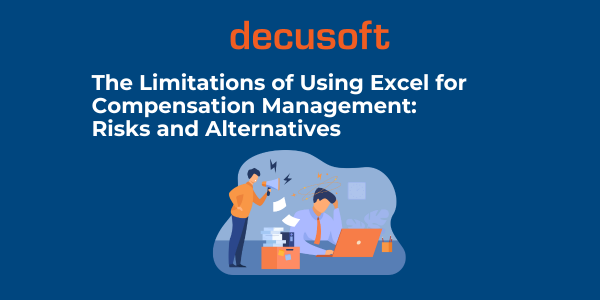In today’s tight labor market, a solid compensation strategy is essential to enhance recruitment. Compensation planning goes beyond simply defining a figure or pay band for employees. Organizations are redefining their compensation strategy to include better pay and additional benefits to attract potential employees.
Companies are also gradually integrating pay transparency and personalized compensation to convey the message of equitable compensation to all. In this article, we discuss how organizations can leverage their compensation strategy for talent acquisition as well as the role of personalized compensation in better hiring practices.
How Can Employers Leverage Their Compensation For Talent Acquisition
Designing a Competitive Compensation Package
Designing a competitive compensation package is the first step in your talent acquisition strategy. Offering a higher salary is one of the most common strategies that companies use to attract candidates while hiring. A competitive compensation strategy includes base pay and bonuses. Organizations also include other benefits like health insurance, vacation pay, and holiday bonuses in the compensation plan. These days, customized or personalized compensation plans are also popular while hiring.
In order to design a truly competitive compensation package, you need thorough market research. Market research is important in determining the salary band for your next hire. It gives you an overview of what similar roles are currently being paid. It also ensures that you are offering comparable and equitable compensation to your employees.
Highlight the Compensation
Organizations often keep information about compensation confidential. They fear losing leverage during negotiations, revealing their strategy to their competitors, and enabling discontentment amongst current employees. However, regardless of these fears, featuring compensation in the job ad will give you an advantage over others.
The bid for pay transparency is rapidly progressing. When candidates see companies offering fair compensation, they will be able to visualize a future at the organization. Candidates have indicated a preference for applying to organizations that mention compensation in the job ad. It also encourages individuals from marginalized communities to apply for the position. So, emphasizing and advertising your competitive compensation package is a great way to attract new talent.
Incorporate Employee Feedback
Talent acquisition leaders and HR professionals come together to create equitable compensation plans for hiring new talent in the company. But, businesses often overlook feedback from employees. Your employees are the primary beneficiaries of the compensation package. Their feedback is crucial in understanding and measuring the impact of the compensation plan.
If you want to get the best out of your compensation plan, consider obtaining feedback from your employees before implementing the strategy for new hires.
Invest in a Compensation Management System
A compensation management system will demystify the complex compensation management process with automation. With a compensation management system, you will be able to save time and money while designing a compensation plan for the new role.
Apart from compensation planning, dedicated compensation management software will allow you to administer, report and analyze compensation data with relative ease. It will allow you to streamline employee data to enhance budget planning and create optimum compensation. It will also automate cumbersome tasks and relieve pressure from HR professionals. In addition, compensation management software is also extremely useful in integrating the company’s compensation philosophy with the compensation plans. Lastly, the vital task of communicating compensation becomes efficient with integrated reward statements.
Investing in compensation management software will allow you to leverage your compensation plan. Here is how a compensation management system can help optimize compensation planning for new talent:
Personalized Compensation Planning with Compensation Management System
A comprehensive compensation management system takes into consideration various data elements that factor into the hiring and retention of the employee. Hiring new talent with an attractive package is the easy part. However, it is equally necessary to retain the employees and compensation can help with that.
While designing a compensation plan, companies usually adopt the ‘one-size-fits-all’ approach. Such a compensation plan includes base pay along with other benefits like health insurance, and bonuses for all employees alike. However, all employees do not have the same needs nor are they satisfied with the same rewards. Personalized compensation plans allow the organization to bank on the candidate’s strengths while offering tangible rewards. For instance, a candidate might prefer more robust health coverage while another might feel motivated by a better holiday bonus. Integrating these preferences conveys to the employees that they are valued. Such personalized plans also enable organizations to retain talented employees in the long run.
Personalized or customized compensation is doing away with the traditional ‘one-size-fits-all’ strategy. Personalized compensation plans are flexible in nature and account for the candidate’s needs and preferences. A personalized compensation plan is a wonderful tactic to attract potential candidates. In contrast, the equity argument is often used against personalized compensation. The question is how to maintain equity while customizing pay for all employees. However, organizations can overcome this issue by encouraging honest conversations about compensation. They can also publicize their compensation philosophy
Another argument against customized compensation is scalability. In large organizations or while hiring at scale, personalizing compensation may not be feasible. After all, compensation management transcends reaching a mutually beneficial deal with a candidate. A compensation management system like Decusoft’s Compose can be of great use here. With Compose, you can reduce time, cost, and errors in compensation planning, management, and administration. In addition, you can access real-time employee data for reporting, statement communication, and analytics. Using modeling and predictive analytics, it is possible to accommodate different scenarios and sudden budget changes. Most importantly, with Compose, keeping up with the data has become much easier in real-time. The dashboards are interactive, data-driven, and provide insightful suggestions to managers and professionals to drive behavior.
Conclusion
Talent acquisition is one of the top priorities for many organizations. However, in the current labor market with high job openings and talent shortages, companies are redefining their compensation strategies. Compensation and benefits are popularly used tactics to attract new candidates while recruiting. By designing a competitive compensation plan, encouraging pay transparency, incorporating employee feedback, and using a compensation management tool, companies can leverage compensation to attract new talent. Moreover, compensation management software is useful to plan and manage personalized compensation for new candidates.



